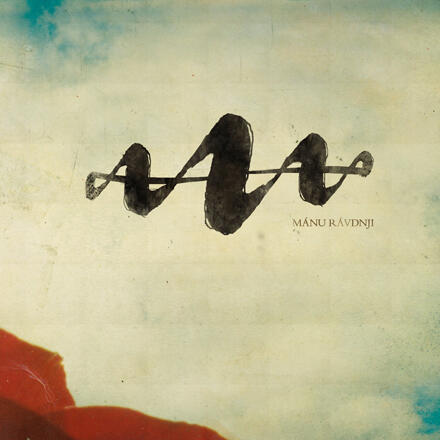Lyrics are unrecognisable, startling vocals delivered in a style that veers between whispered but crystal clear sweetness, unbridalled emotion and all points in between, sometimes hitting notes that may previously have never existed.
Their music is based around the concept of the yoik, a traditional musical form which describes something not with its words but its sounds. You can start a yoik where you like, you can end it where you like. Its elements remain structured, but its fluid at the same time. A yoik is like liquid in a bottle you can shake it up, but the contents remain the same. And the content of the yoik deliberately has many meanings, in order, if necessary, to spare the feelings of the subject. So it may pass judgement, but its open to interpretation. It is also possible to be the subject of more than one yoik: how it sounds depends upon the perspective of the person who is delivering it. More importantly, a yoik is not written. It comes to a person. Some yoikers sleep with their mobile phone by their bed at all times so that when a yoik comes to them in their dreams they are able to record it the moment they wake.
A yoik that is deliberately written has no soul, and a yoiker knows this.Dont tag this as simply world music, though, unless you already label the likes of Sigur Ros or Cocteau Twins as such. ADJÁGAS appeal stretches far beyond what that somewhat patronising term implies. They will no doubt bring the concept of Sami culture to many people for the first time. But, first and foremost, they will bring a music of immediate, immaculate, intimate beauty to people, one that crosses all cultural boundaries.
Samiland, also known as Lapland, is the territory at the very northernmost parts of Norway, Sweden and Finland, spreading into Russia. The Sami tribes, numbering about 60,000 now, follow a nomadic existence, herding their reindeer all year from the central lands in the winter to the coasts in summer and back again. They are a people who have, over the years, been exploited in much the same way as Native Americans were, especially when white traders discovered that alcohol made a much more effective bargaining tool than money. As late as the 1950s it was illegal to speak Sami in Norwegian schools, and the Samis were forced to adopt Norwegian identities to such an extent that they had to change their names in order to buy land. For many of their traditions its almost too late, as the culture is overwhelmed by more standard European habits. But still the Sami people continue to live, as best they can, in the way they always have. This is not to give the impression that they are a backward people. They drive snow mobiles and carry mobile phones. But the Sami have their ways, and these ways are slowly being eroded.
MÁNU RÁVDNJI is Adjagas´ sophomore effort. Their debut album was released to much fanfare and fascination in the international press. As well as the debut the new album is produced by one of Norway´s finest, Andreas Mjøs. His delicate work and arrangements combined with the wild and energetic music by Gebhart (ex Motorpsycho) puts the album to a rawer sound that on their debut and carry the yoik by Lawra Somby and Sara Marielle Gaup to new levels.
MÁNU RÁVDNJI means the streaming light from the moon. In that light any emotion can appear. Just like in the music of Adjagas.
www.trustmerecords.com


